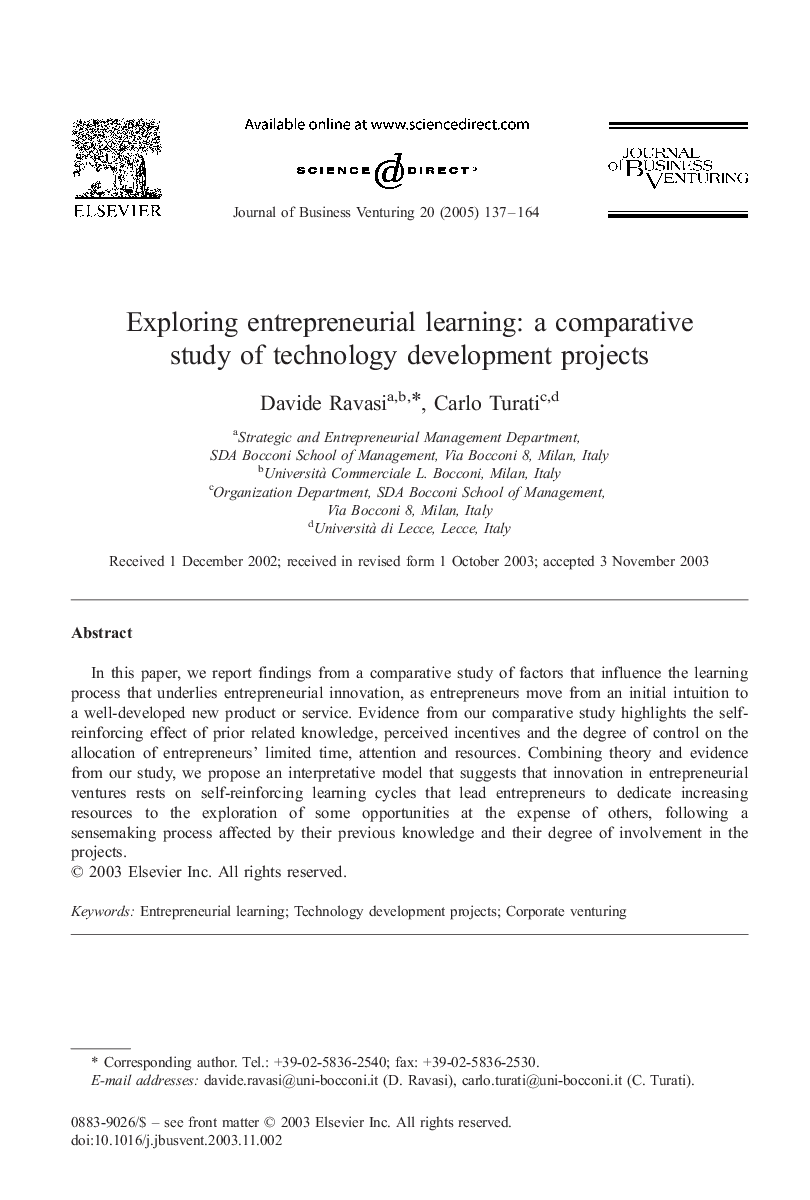| Article ID | Journal | Published Year | Pages | File Type |
|---|---|---|---|---|
| 10493937 | Journal of Business Venturing | 2005 | 28 Pages |
Abstract
In this paper, we report findings from a comparative study of factors that influence the learning process that underlies entrepreneurial innovation, as entrepreneurs move from an initial intuition to a well-developed new product or service. Evidence from our comparative study highlights the self-reinforcing effect of prior related knowledge, perceived incentives and the degree of control on the allocation of entrepreneurs' limited time, attention and resources. Combining theory and evidence from our study, we propose an interpretative model that suggests that innovation in entrepreneurial ventures rests on self-reinforcing learning cycles that lead entrepreneurs to dedicate increasing resources to the exploration of some opportunities at the expense of others, following a sensemaking process affected by their previous knowledge and their degree of involvement in the projects.
Related Topics
Social Sciences and Humanities
Business, Management and Accounting
Business and International Management
Authors
Davide Ravasi, Carlo Turati,
